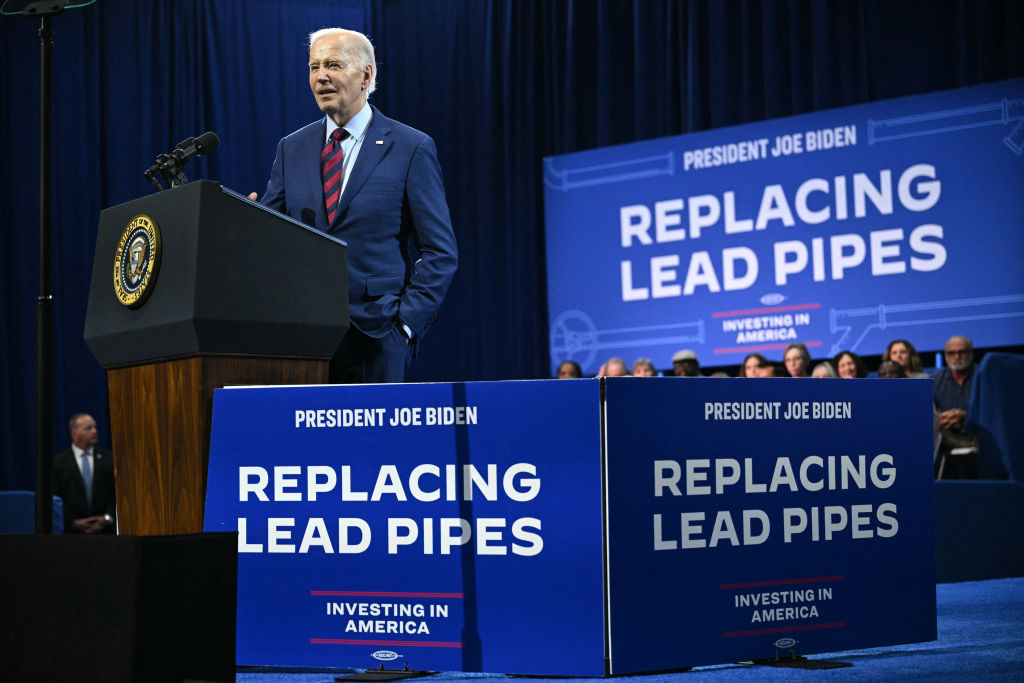A batch of new polls from the New York Times, Siena College, and the Philadelphia Inquirer has very bad news for President Biden: He’s losing. Among registered voters, he’s significantly behind in five of the six battleground states that are most likely to decide the election. He does slightly better among likely voters but remains behind in five key states.
It’s a snapshot, but it’s consistent with the overall trend of this campaign—which is, again, he’s losing.
Biden and many of his supporters seem to think the solution is to get right with the issues—the economy, the Israel-Hamas war, student loans, pot legalization, the threat to democracy and so on. If he can just find the sweet spot on policy, they believe, voters will come home.
That might be true to some extent. But I think focusing on the issues misses Biden’s real weakness: vibes.
“Vibes” is just the trendy word for “mood” or “feelings.” Whatever you call them, the relationship between attitudes and issues is not always as rational as some think.
People who care passionately about issues think issues are really important. On one level, this is a fairly ridiculous tautology. But what I mean is that people who are really engaged in politics—activists, journalists, donors—believe issues drive everyone else’s engagement with politics.
Politicians take popular positions on issues based on the understandable assumption that they will be popular as a result. Obviously, it often works this way. But sometimes the causality goes in the other direction. Some people start as rabid partisans or superfans of a politician, and that drives their views of the issues.
In 2012, for instance, when Barack Obama endorsed gay marriage, millions of Democrats suddenly switched from opposition to support. In 2017, when Donald Trump made protectionism a centerpiece of his agenda, many Republicans changed their positions. (They also changed their position on “character,” but that’s another story.) I suspect that at least some of Biden’s low approval ratings on many issues have less to do with people’s policy preferences than with their starting assumption that he’s wrong.
The Biden campaign wants to leverage the issue of abortion. That’s smart. After the overturning of Roe v. Wade, abortion really is an issue that can overpower vibes. But consider that a constitutional referendum to legalize abortion has 61 percent support in Florida, while Biden is polling around 37 percent in the state. When abortion rights outpoll a Democratic candidate nearly 2-to-1, vibes are an issue.
The best analogy is to 1992. While some partisans and ideologues convinced themselves that they hated George H.W. Bush, the truth is most people were just exhausted with him, Republicans, or the status quo.
The Bush economy wasn’t great, but the relatively mild recession of 1990-91 was far from the depression portrayed by many in the media, the Democratic Party, and the electorate. But Bush, who hated campaigning, often helped his detractors paint him as “out of touch.” It’s difficult to describe the reaction to the moment the president looked at his watch during a debate question about the recession, allegedly signifying his aloofness, or seemed impressed by a new supermarket checkout scanner, supposedly revealing that he didn’t understand how normal people live. In any case, many voters agreed with the worst interpretations.
The mainstream media isn’t remotely as hostile to Biden, but that’s not the advantage it seems to be. In a populist age, elite media support feels like establishment wagon-circling, not just to the Trump-friendly but also to disillusioned young and progressive voters. Even when the press thinks it’s helping Biden, it perpetuates the out-of-touch vibe. For starters, the whole Biden-likes-ice-cream thing is played out.
More to the point, voters resent the idea, pushed by many pundits, that they should wake up to the fact that the economy is actually doing much better than they think. Biden is exacerbating the problem by constantly boasting about the economy rather than emulating the elder President Bush’s successful opponent and emphasizing his empathy for what people are experiencing.
The economy really is better than vibes suggest, although inflation and high interest rates tend to overwhelm all other indicators. The other problem is that, as political scientist Seth Masket notes, “Presidential approval is largely untethered from economic growth these days.” That’s vibes.
Obviously, it would help if Biden could fix inflation and interest rates. But he can’t. Moreover, his vibe problem extends beyond the economy.
His desperation to fix his problems with poll-driven policy and rhetoric underscores the sense that he’s flailing and can’t keep up with the demands of the job. This both fuels and is fueled by his age problem. Biden seems exhausted, and people are exhausted with him.









Please note that we at The Dispatch hold ourselves, our work, and our commenters to a higher standard than other places on the internet. We welcome comments that foster genuine debate or discussion—including comments critical of us or our work—but responses that include ad hominem attacks on fellow Dispatch members or are intended to stoke fear and anger may be moderated.